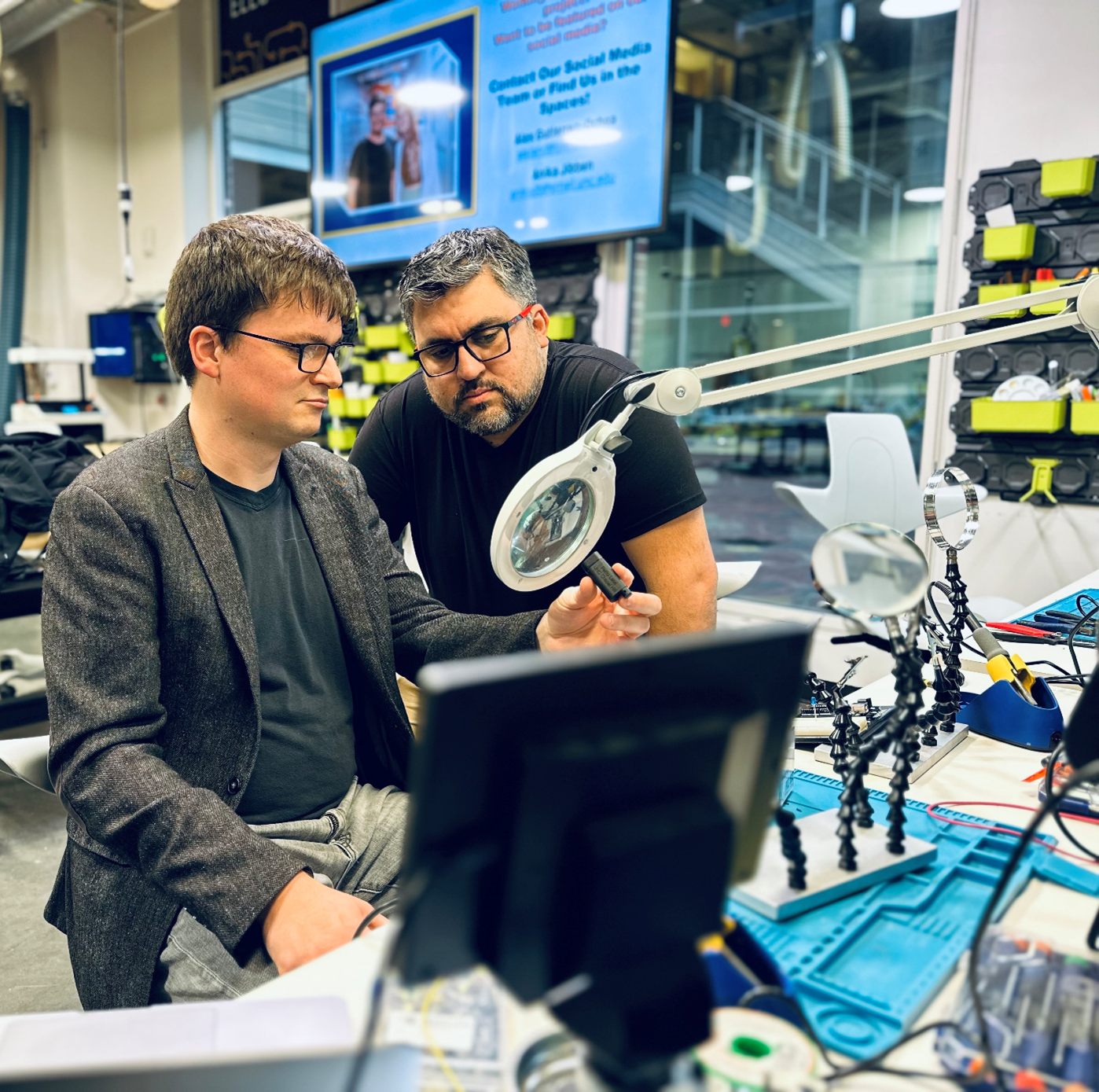Pégard receives prestigious Sloan Research Fellowship
Pégard receives prestigious Sloan Research Fellowship
As a result of his trailblazing research in neuroscience, Dr. Nicolas Pégard, an assistant professor in the department of Applied Physical Sciences, has been selected as a 2023 Research Fellow in Neuroscience by the Alfred P. Sloan Foundation. The Sloan fellowship is one of the most prestigious awards available to early-career researchers in recognition for their distinguished performance as independent scientists, and for their unique potential to make substantial contributions to their field.
Dr. Pégard completed his doctoral studies in computational imaging at Princeton University and received postdoctoral training in neurosciences at UC Berkeley. He then joined the UNC faculty in 2019 with a Career Award at the Scientific Interface from the Burroughs Wellcome Fund to establish a research program at the intersection of neuroscience, optical engineering, and computer science, and tackle ambitious neuroscience research questions with custom-designed optical technology.

One of the main research directions of the Pégard lab, funded by a 2021 Beckman Young Investigator award, is the development of miniaturized optical brain machine interfaces, i.e. devices that utilize light to monitor and manipulate the activity of neurons. “Neuroscientists have found ways to modify neurons, genetically or with viral infections, to make them sensitive to light. With photosensitized neurons you can observe, inhibit, or activate action potentials, but if you want to do that on demand, across many neurons in parallel, fast, and deep into the brain in an awake animal, you need something better than an off-the-shelf laboratory microscope,” Pégard adds.
The research strategy of the Pégard lab is highly collaborative and brings together scientists with diverse expertise to tackle challenges that are beyond the reach of a single laboratory. New collaborations in which Pégard brings together both basic and clinical scientists have received competitive seed grants including the 2021 UNC NeuroSpark award and a 2022 Kavli Foundation Innovation Award.
Pégard plans to use the Sloan Fellowship funding to develop a new technology to monitor physiological arousal dynamics called biometric ocular photometers (BOPs) in a collaboration with the laboratory of Prof. Jose Rodriguez Romaguera in the Department of Psychiatry at UNC. Their technology will be applied in both mice and human research. “The technology we are developing uses infrared light diffusing from the back of the eye to track eye movement, pupil size, breathing rate, and heart rate,” Pégard explains.
The Sloan Research Fellowships have been awarded annually since 1955. Administered and funded by the Alfred P. Sloan Foundation, the fellowships are awarded in close cooperation with the scientific community. Potential fellows must be nominated by their peers and are then selected by an independent panel of senior scholars.

